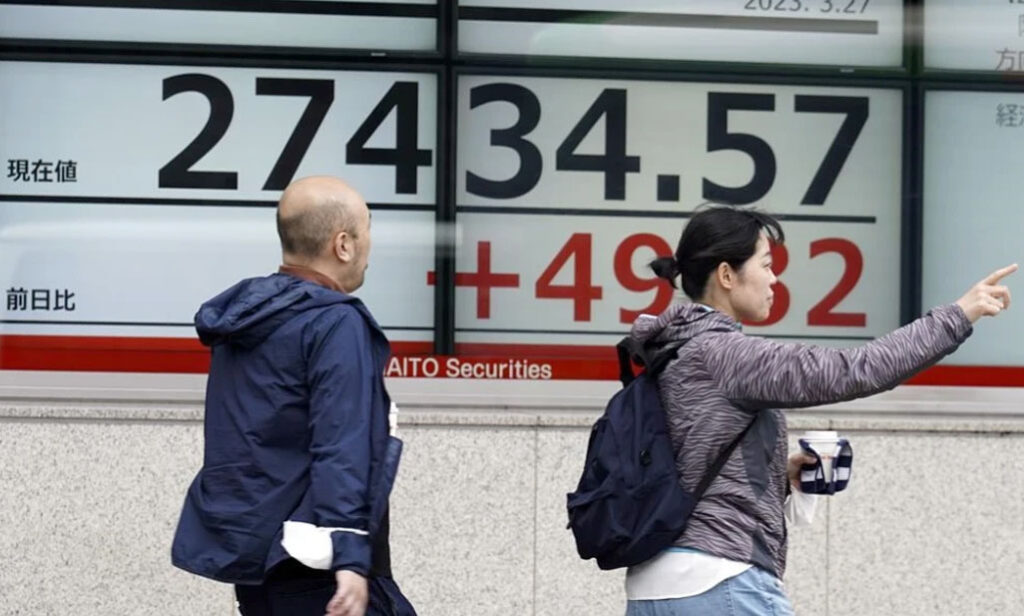U.S. and Europe futures higher despite Asian shares struggling On Monday, U.S. and European stock futures edged higher despite Asian shares struggling. Reports of First Citizens BancShares Inc’s advanced talks to acquire Silicon Valley Bank from the Federal Deposit Insurance Corp. helped nerves. The S&P 500 futures rose 0.3% and Nasdaq futures 0.4%. Additionally, EUROSTOXX 50 futures rallied 1.1% and FTSE futures 0.7%. While Japan’s Nikkei gained 0.4%, South Korea lost 0.3%. MSCI’s broadest index of Asia-Pacific shares outside Japan also fell by 0.3%, led by a 0.9% drop in Chinese blue chips. Shares in Baidu (NASDAQ:BIDU), a Chinese search engine giant, fell by more than 3% after it cancelled a planned livestreamed product launch related to its ChatGPT-like Ernie bot that was open to media and the public. The mood remained jittery due to the fact that the cost of insuring Deutsche Bank’s bonds against the risk of default had sharply increased and shares in the bank had fallen by 8.5% on Friday. The credit default swaps (CDS) of many other banks had also risen sharply, which made the current level of credit default swaps for European banks just a little lower than it was during the height of the European financial crisis in 2013, according to Naeem Aslam, Chief Investment Officer at Zaye Capital Markets. Deposit flows to money market funds in the United States rose by more than $300 billion in the past month to a record $5.1 trillion, while depositors have been fleeing smaller banks for their larger cousins. Minneapolis Fed President Neel Kashkari said on Sunday that officials were watching “very, very closely” to see if the banking stress led to a credit crunch that threatened to tip the economy into recession. The yields on two-year Treasuries have fallen an astonishing 102 basis points so far this month, standing at 3.77%, while the entire yields curve out to 30 years is below the 4.85% effective funds rate. Yields falling has sometimes had a negative impact on the dollar, at least against the safe-haven Japanese yen, where it stands at 130.60 yen, having touched a seven-week low of 129.65 last week. The euro suffered its own reversal on Friday amid the worries over Deutsche, and it was last at $1.0770 and well off last week’s $1.0930 top. Gold’s price has been burnished as the fall in yields has combined with the run from risk. It was trading at $1,975 an ounce after reaching a high above $2,009 last week. Oil prices remained little changed, nursing losses of almost 10% for the month, as worries about global growth undermine commodities in general. Brent fell 1 cent to $74.98 a barrel, while U.S. crude added 2 cents to $69.28 per barrel.
Asian shares uneasy, while futures for US and Europe show slight gains

